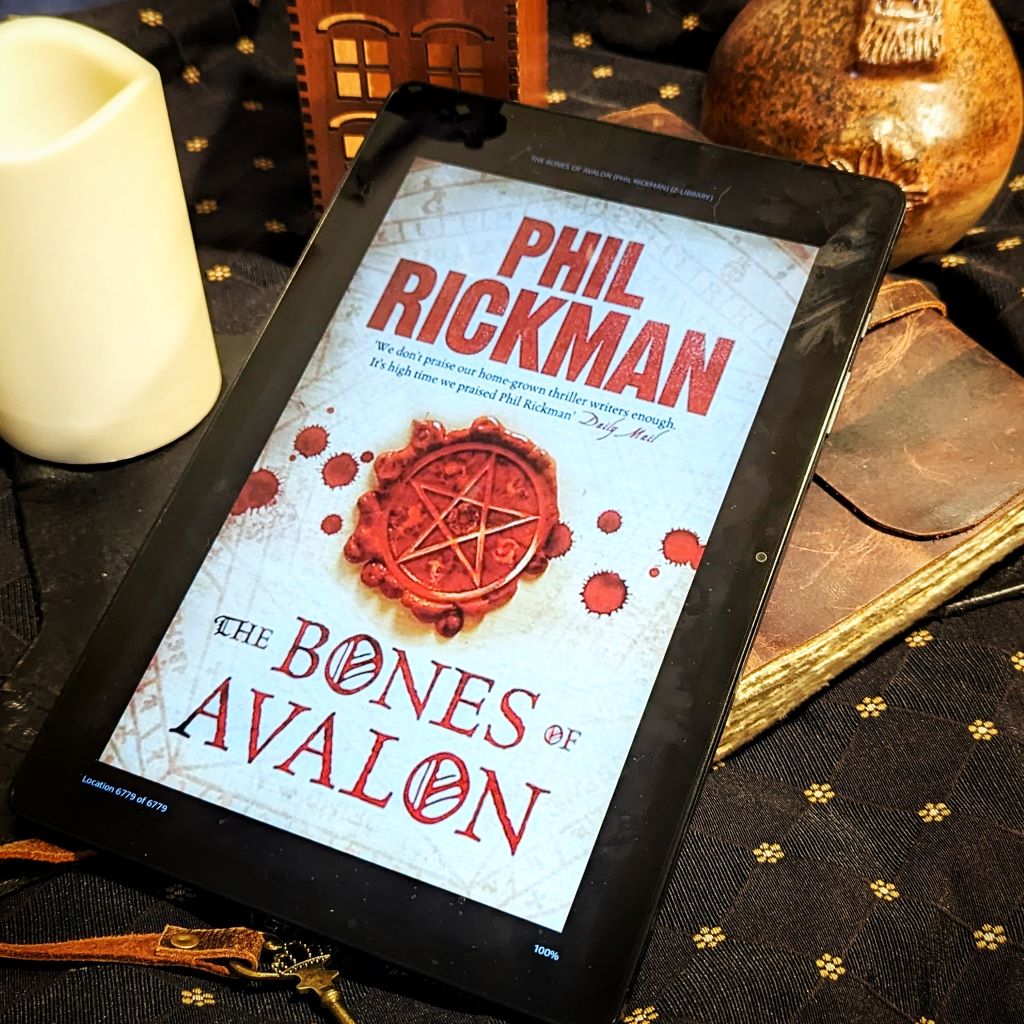
Book Review: The Bones of Avalon (John Dee Papers #1) by Phil Rickman
🕮 Book review: The Bones of Avalon (John Dee Papers #1) by Phil Rickman
I’m (obviously, if you’re here reading this) a fan of 16th & 17th century media, including historical fiction. But in some stereotypically red-blooded, hetero male ways, I tend to prefer adventure stories and high-stakes dramas over the romantic romps that tend to take up a lot of oxygen with Tudor casts and settings.
(And maybe it’s my contrarian streak that keeps me away from just about anything Anne Boleyn related.)
This is why I was cautiously interested in The Bones of Avalon by Phil Rickman, which places Elizabeth I’s court astrologer, Dr. John Dee, and the Queen’s most famous friend, advisor, and – rumored – paramour Robert Dudley in starring roles as they are sent on a secret mission to find the lost bones of King Arthur.
What begins as an undercover political stunt devolves into something much more fraught. Glastonbury’s once powerful and stabilizing abbey is no more: a relic of Henry VIII and Thomas Cromwell’s dissolution of the monasteries some twenty years prior.
Dee and Dudley find the town surrounding the bones of the abbey to be full of suspicion, scheming former monks, bone-selling hucksters, and pious – or power-mad – suspicions of local folklore and folk healers. Not all as it seems as Dee and Dudley uncover more than they bargained for.
— —
📖 History, 🎨 art, & 🎲 games from the Renaissance Netherlands & Europe 1549-1619
☙ facebook.com/rebelsorbeggars
☙ instagram.com/rebelsorbeggars
☙ rebelsorbeggars.com
— —
Rickman’s attention to historical detail brings the period to life, vividly portraying Dee as a complex figure. He is equal parts a “modern” scientist, a man fascinated by the occult, and someone coming to grips with his own insecurities with relationships – both platonic and romantic.
The evolving tension between religion as a mask for power versus folklore & superstition becomes center to the novel’s plot. Rickman could have written this as any other mystery novel with throwaway Elizabethan trappings, but in framing the plot so, he anchors it in this time and place. I appreciated that.
Glastonbury and its ruined abbey feel evocative and otherworldly at times. Rickman write Dee – the first person narrator – so introspectively that the novel drags in the first two acts. This slow pace can be rough, but it also makes for a great insight into the protagonist. Yet, all the leisurely pacing vanishes as the third act begins to race to one unexpected reveal after another, ending in a few shocking surprises!
I enjoyed the work enough to check out its sequel, The Heresy of Dr Dee.
